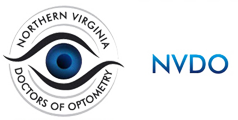You can expect changes in your bodily processes and functions as you age. Your eyesight, in particular, is most vulnerable. A common problem is the inability to see things clearly even when you’re wearing corrective eyewear, a condition known as low vision.

Your expert eye doctor from Northern Virginia Doctors of Optometry discusses this problem in detail.
How Aging Affects Your Low Vision Risk
The National Eye Institute explains that a decline in your visual capacity normally happens as you grow older. This is why age is a major factor in most eye conditions. In fact, some of the most common sight-threatening problems develop in your late adult years.
Studies reveal that many age-related eye diseases have low vision as one of their complications. This includes macular degeneration, diabetic retinopathy and retinal detachment. Cataracts and glaucoma may also lead to this problem. Diminished neurological and visual functions may require low vision therapy.
Diagnosis, Prevention and Management
Low vision may have adverse effects on your ability to see, but also on your overall health. It may also prevent you from easily doing your daily tasks or enjoying your hobbies, reducing your quality of life. This condition, along with your increased age, may put your safety at risk as well. This is why many affected individuals develop feelings of isolation and depression, too.
Regular, comprehensive eye exams can detect low vision as early as possible. Doing so allows us to identify this problem, creating opportunities for its immediate management. To improve your eyesight, we may suggest including vision therapy in your eye care plan. This involves doing eye exercises, wearing high-powered eyeglasses or using visual aids to regain independence over your everyday activities.
For more information about low vision, call us at (703) 467-9080, or complete our form to request an appointment. We serve families in Reston and the surrounding Virginia areas.



























